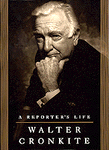|
fromWar Department Film Bulletin (F.B No.184): NARRATOR: For every four men wounded, one soldier will become a psychiatric casualty. Such men may be shaking or crying, but more often they are just very tired and dirty and depressed. They are unnerved and have no initiative. They're not quitters, but are truly ill. Army Psychiatric INTERVIEWER: Tell me soldier, what's your trouble? SOLDIER: I can't stand seeing people killed. INTERVIEWER: What were you afraid of? SOLDIER: Everything. INTERVIEWER: What, in particular? SOLDIER: [sniff] INTERVIEWER: What, in particular? SOLDIER: Dead. INTERVIEWER: What? SOLDIER: Dead. INTERVIEWER: Dead what? SOLDIER: Dead people. Can't stand seeing them. INTERVIEWER: I can't hear you.
SOLDIER: Can't stand seeing dead people.
quoted from |
 Many times during the cold war and America's near hysteria over the Communist threat, . . .I thought a lot about the fervent anti-Communists' seldom questioned slogan: "Better Dead than Red." That sort of deeply patriotic sentiment, it seems to me, might have had some rationale in the days when wars had winners and loosers. But does it stand up in the nuclear age, when a massive exchange of bombs would cause such great losses, even, perhaps, the destruction of life on earth as we know it?
Many times during the cold war and America's near hysteria over the Communist threat, . . .I thought a lot about the fervent anti-Communists' seldom questioned slogan: "Better Dead than Red." That sort of deeply patriotic sentiment, it seems to me, might have had some rationale in the days when wars had winners and loosers. But does it stand up in the nuclear age, when a massive exchange of bombs would cause such great losses, even, perhaps, the destruction of life on earth as we know it?

 Go to the
Go to the